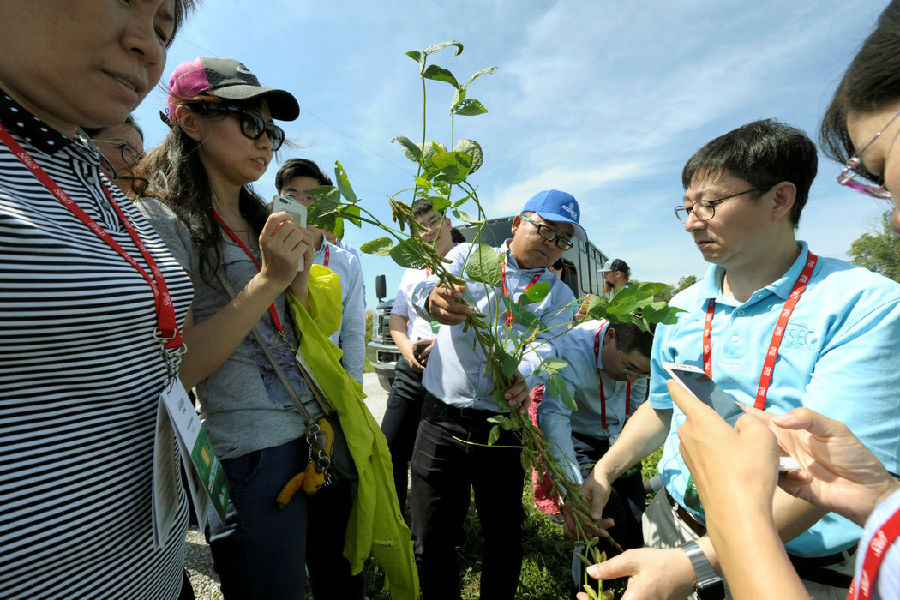Trade War Leads Chinese Spending In U.S. to Plunge
貿(mào)易僵局引中國對美投資銳減
By Alan Rappeport
文/阿蘭·拉巴波特
Growing distrust between the United States and China has slowed the once steady flow of Chinese cash into America,
美中兩國互不信任的局面日益惡化,導(dǎo)致原本穩(wěn)定的中國資金流速放緩,
with Chinese investment plummeting by nearly 90 percent since President Trump took office.
自特朗普總統(tǒng)上任以來,來自中國的投資暴跌已近9成。
The falloff, which is being felt broadly across the economy,
美國經(jīng)濟(jì)普遍受到了暴跌的影響。之所以出現(xiàn)暴跌,
stems from tougher regulatory scrutiny in the United States and a less hospitable climate toward Chinese investment,
究其原因,一是美國加強(qiáng)了監(jiān)管審查,二是國內(nèi)對中方的投資環(huán)境不再友好,
as well as Beijing’s tightened limits on foreign spending.
除此之外,北京也收緊了對外投資的限制。
It is affecting a range of industries including Silicon Valley start-ups, the Manhattan real estate market
暴跌正在影響一系列行業(yè),如硅谷初創(chuàng)企業(yè)、曼哈頓房地產(chǎn)市場
and state governments that spent years wooing Chinese investment,
以及多年來一直致力于吸引中國投資的各州政府,
underscoring how the world’s two largest economies are beginning to decouple after years of increasing integration.
暴跌也表明,多年來一直在加強(qiáng)一體化的兩大經(jīng)濟(jì)體已經(jīng)開始脫鉤。

“The fact that the foreign direct investment has fallen so sharply
“外來直接投資大幅縮減
is symbolic of how badly the economic relationship between the United States and China has deteriorated,”
標(biāo)志著美中經(jīng)濟(jì)關(guān)系已經(jīng)嚴(yán)重惡化,”
said Eswar Prasad, former head of the International Monetary Fund’s China division.
國際貨幣基金組織(IMF)中國部前負(fù)責(zé)人埃斯瓦爾·普拉薩德表示。
“The U.S. doesn’t trust the Chinese, and China doesn’t trust the U.S.”
“美國不信任中國,中國也不信任美國。”
For years, Chinese investment into the United States had been accelerating,
多年來,中國的對美投資一直在攀升,
with money pouring into autos, tech, energy and agriculture and fueling new jobs in Michigan, South Carolina, Missouri, Texas and other states.
中方資金源源不斷地涌入美國的汽車、科技、能源和農(nóng)業(yè)領(lǐng)域,為密歇根、南卡羅來納、密蘇里、得克薩斯等州創(chuàng)造了大量就業(yè)。
As China’s economy boomed,
隨著中國經(jīng)濟(jì)的蓬勃發(fā)展,
state and local governments along with American companies looked to snap up some of those Chinese funds.
各州政府及地方政府連同美國企業(yè)都在爭相吸引中方資金。
But Mr. Trump’s economic Cold War has helped reverse that trend.
然而,特朗普的經(jīng)濟(jì)冷戰(zhàn)推動了這一趨勢的逆轉(zhuǎn)。
Chinese foreign direct investment in the United States fell to $5.4 billion in 2018 from a peak of $46.5 billion in 2016, a drop of 88 percent,
經(jīng)濟(jì)研究公司榮鼎咨詢的數(shù)據(jù)顯示,截至2018年,
according to data from Rhodium Group, an economic research firm.
中國對美直接投資已經(jīng)從2016年的峰值465億美元跌至54億美元,跌幅88%。
Preliminary figures through April of this year, which account for investments by mainland Chinese companies,
就今年4月的初步統(tǒng)計(jì)數(shù)據(jù)來看,中國大陸企業(yè)的投資規(guī)模為28億美元,
suggested only a modest uptick from last year, with transactions valued at $2.8 billion.
相比去年僅略有上浮。
“I certainly hear in conversations with investors a lot of concern about whether the U.S. market is still open,”
“和投資者交談的過程中,我確實(shí)聽到了很多有關(guān)美國市場今后是否還會繼續(xù)開放的顧慮,”
said Rod Hunter, a lawyer at Baker McKenzie who specializes in foreign investment reviews.
貝克麥堅(jiān)時(shí)律師事務(wù)所專門從事外國投資評估的律師羅德·亨特說道。
“You have a potentially chilling effect for Chinese investors.”
“當(dāng)前的形勢可能引發(fā)中國投資者的寒蟬效應(yīng)。”
譯文由可可原創(chuàng),僅供學(xué)習(xí)交流使用,未經(jīng)許可請勿轉(zhuǎn)載。


